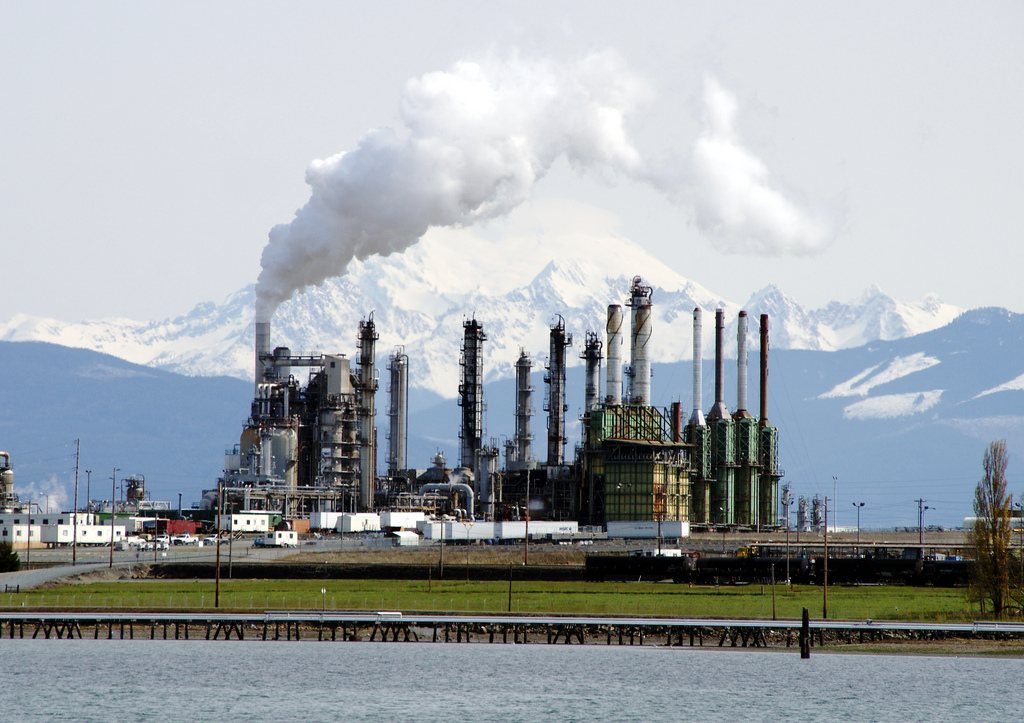Here’s the latest in a string of petrochemical developments across the Northwest: the oil company Tesoro plans to spend $400 million upgrading its Anacortes refinery to add a xylene extraction facility that could pose serious environmental risks to the Salish Sea. The public has a limited opportunity to weigh in—from right now until April 15.
A lesser-known liquid petrochemical, xylene, is the principal chemical precursor in the production of polyethylene terephthalate (PET), which is used for making plastic bottles, polyester fibers, food packaging, paint, rubber, solvents, and other products. It is created from a partially refined crude oil product called reformate that is often produced from light oil, such as Bakken shale oil, which yields particularly high levels of petroleum naphtha. The facility would be capable of producing 15,000 barrels of xylene per day for export, primarily to Asia, representing roughly a 9 percent increase in total US xylene production.
Xylene is also dangerous to public health. Short-term exposure to xylene is known to cause difficulty breathing, impaired memory, and delayed response to visual stimulus, among other issues. At very high levels of short-term exposure, people have died. Long-term exposure can lead to depression, insomnia, tremors, and worse.
Xylene production also creates yet another spill risk for the Salish Sea, and xylene tanker mishaps have caused tremendous damage in the past, such as the 2007 spill on the Mississippi River. The Tesoro expansion would add up to five tankers per month navigating Fidalgo Bay and the surroundings water of the Salish Sea.
Right now, Skagit County officials are deciding how they will review the project. Will they take a broad or narrow view of the chemicals potential impacts? Will they consider offsite risks or the compounding dangers of petrochemical developments nearby? These and other questions are yet to be answered.
The public only has until April 15th to weigh in. You can submit comments here.
Looking for more resources?
- Evergreen Islands, a small Anacortes-based NGO, has published excellent analyses of the project’s impacts. Its official comments on the project are a model of precision and effectiveness.
- Tesoro’s permit documents for the project.
- Skagit County, the lead agency conducting an environmental review of the project, has published key background material.
- Sightline has examined the checkered past of Tesoro in a hard-hitting report on the firm’s track record, The Dirt on Tesoro.
- Sightline has also written a crash course on xylene in an article, “What Is Xylene, and What Does It Mean for Puget Sound?”
- Sightline has inventoried some of the known risks of xylene production and transport in an article, “How Tesoro’s Petrochem Plans May Threaten Anacortes and the Salish Sea.”
[button link='{“url”:”http://tesoroanacorteseis.publicmeeting.info/comment”,”title”:”Submit your comment now”}’]
Special thanks to Tom Glade at Evergreen Islands for bird-dogging the project and providing many of the materials that made this article possible.



Comments are closed.